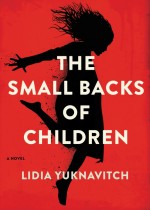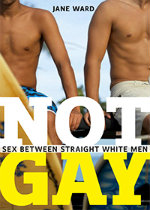New in July: Big Freedia, Carolina De Robertis, Lidia Yuknavitch, Jane Ward, and Linda Rosenkrantz

Author: Edit Team
July 6, 2015
New month, new books! A new month is upon us, and so are a slew of new and noteworthy LGBT books.
Booty-shakers, rejoice! This month, Gallery Books is releasing Big Freedia: God Save The Queen Diva!, a new memoir from the beloved Bounce artist Big Freedia.
From the publisher:
From the eponymous star of the most popular reality show in Fuse TV’s history, this no-holds-barred memoir tells the story of a gay, self-proclaimed mama’s boy who exploded onto the formerly underground Bounce music scene—a hip-hop subgenre—and found acceptance, healing, self-expression, and stardom!
As the “undisputed ambassador” of the energetic, New Orleans-based Bounce movement, Big Freedia isn’t afraid to twerk, wiggle, and shake her way to self-confidence, and is encouraging her fans to do the same. In her engrossing memoir, Big Freedia tells the inside story of her path to fame, the peaks and valleys of her personal life, and the liberation that Bounce music brings to herself and every one of her fans who is searching for freedom.
Big Freedia immediately pulls us into the relationship between her personal life and her career as an artist; being a “twerking sissy” is not just a job, she says, but a salvation. A place to find solace. To escape from the battles she faced growing up in the worst neighborhood in New Orleans. To deal with losing loved ones to the violence on the streets, drug overdoses, and jail. To survive hurricane Katrina by living on her roof for two days with three adults and a child. To grapple with the difficulties and celebrate the joys of living.
In her new novel The Gods of Tango (Knopf), author Carolina De Robertis maps the fictional escapades of an early 1900s female tango dancer:
February 1913: seventeen-year-old Leda, clutching a suitcase and her father’s cherished violin, leaves her small Italian village for a new home (and husband) halfway across the world in Argentina. Upon her arrival in Buenos Aires, Leda is shocked to find that her bridegroom has been killed. Unable to fathom the idea of returning home, she remains in this unfamiliar city, living in a commune, without friends or family, on the brink of destitution. She finally acts on a passion she has kept secret for years: mastering the violin. Leda is seduced by the music that underscores life in the city: tango, born from lower-class immigrant voices, now the illicit, scandalous dance of brothels and cabarets. Leda knows, however, that she can never play in public as a woman, so she cuts off her hair, binds her breasts, and, as a young man, joins a troupe of musicians bent on bringing tango into the salons of high society. As time progresses, the lines between Leda and her disguise will begin to blur, and feelings that she has long kept suppressed will reveal themselves, jeopardizing not only her music career but her life itself.of royalty and athletic champions, and a pre-Stonewall figure who never buckled to convention. Henrietta’s audacious physicality made her unforgettable in her own time, and her ecstatic and at times harrowing story brings to life an essential chapter in America’s twentieth century.
Originally published in 1968, novel Talk (New York Review Books), is a witty and candid snapshot of sixties-era friendship:
Talk is a hilariously irreverent and racy testament to dialogue: the gossip, questioning, analysis, arguments, and revelations that make up our closest friendships. It’s the summer of 1965 and Emily, Vincent, and Marsha are at the beach. All three are ambitious and artistic; all are hovering around thirty; and all are deeply and mercilessly invested in analyzing themselves and everyone around them. The friends discuss sex, shrinks, psychedelics, sculpture, and S and M in an ongoing dialogue where anything goes and no topic is off limits. Talk is the result of these conversations, recorded by Linda Rosenkrantz and transformed into a novel whose form and content put it well ahead of its time. Controversial upon its first publication in 1968, Talk remains fresh, lascivious, and laugh-out-loud funny nearly fifty years later.
This month, NYU Press is releasing Not Gay: Sex between Straight White Men by Jane Ward, a provocative exploration of male sexual identity:
A straight white girl can kiss a girl, like it, and still call herself straight—her boyfriend may even encourage her. But can straight white guys experience the same easy sexual fluidity, or would kissing a guy just mean that they are really gay? Not Gay thrusts deep into a world where straight guy-on-guy action is not a myth but a reality: there’s fraternity and military hazing rituals, where new recruits are made to grab each other’s penises and stick fingers up their fellow members’ anuses; online personal ads, where straight men seek other straight men to masturbate with; and, last but not least, the long and clandestine history of straight men frequenting public restrooms for sexual encounters with other men. For Jane Ward, these sexual practices reveal a unique social space where straight white men can—and do—have sex with other straight white men; in fact, she argues, to do so reaffirms rather than challenges their gender and racial identity.
In novelist Lidia Yuknavitch’s new book The Small Backs of Children (HarperCollins) the intersections between war, the media, love, and sex are cannily explored:
With the flash of a camera, one girl’s life is shattered, and a host of others altered forever. . .
In a war-torn village in Eastern Europe, an American photographer captures a heart-stopping image: a young girl flying toward the lens, fleeing a fiery explosion that has engulfed her home and family. The image wins acclaim and prizes, becoming an icon for millions—and a subject of obsession for one writer, the photographer’s best friend, who has suffered a devastating tragedy of her own.
As the writer plunges into a suicidal depression, her filmmaker husband enlists several friends, including a fearless bisexual poet and an ingenuous performance artist, to save her by rescuing the unknown girl and bringing her to the United States. And yet, as their plot unfolds, everything we know about the story comes into question: What does the writer really want? Who is controlling the action? And what will happen when these two worlds—east and west, real and virtual—collide?
In the new thriller Price of Honor (Bold Strokes Books), author Radclyffe weaves a riveting tale of duty and betrayal:
Honor and duty are not always black and white—and when self-styled patriots take up arms against the government, the price of honor may be a life.
Blair Powell and Jane Graves have much in common and even more that sets them apart in an invisible battle raging on home soil. Blair’s father is the president of the United States, while Jane’s is a domestic terrorist bent on bringing about a new world order at the expense of the present one. When Blair takes to the campaign trial to support her father’s re-election, Cameron Roberts and the newest members of Blair’s security detail must protect the president and his daughter from foes bent on revenge. Jane and her secret ally within the president’s inner circle vow to destroy them all, at any cost.
This month also sees the release of new romance titles from Gerri Hill, Georgia Beers, and Gun Brooke.
As always, if we missed an author or book, or if you have a book coming out next month, please email us.
 |
 |
Fiction
- Asher’s Out by Elizabeth Wheeler, Bold Strokes Soliloquy
- The Gods of Tango by Carolina De Robertis, Knopf
- The Heart’s Eternal Desire by David Holly, Bold Strokes Liberty Editions
- The Small Backs of Children by Lidia Yuknavitch, HarperCollins
- Threads of the Heart by Jeannie Levig, Bold Strokes Victory Editions
- Talk by Linda Rosenkrantz, New York Review Books
 |
Nonfiction
- Audre Lorde’s Transnational Legacies edited by Stella Bolaki and Sabine Broeck, University of Massachusetts Press
- SlutWalk: Feminism, Activism and Media by Kaitlynn Mendes, Palgrave Macmillan
 |
LGBT Studies
- Ancient Sex: New Essays (Classical Memories/Modern Identities) edited by Ruby Blondell and Kirk Ormand, Ohio State University Press
- Bisexuality: Identities, Politics, and Theories (Genders and Sexualities in the Social Sciences) by Surya Monro, Palgrave Macmillan
- Debating Hate Crime: Language, Legislatures, and the Law in Canada (Law and Society Series) by Allyson Lunny, University of Washington Press
- Intersex, Theology, and the Bible: Troubling Bodies in Church, Text, and Society by Susannah Cornwall, Palgrave Macmillan
- Not Gay: Sex between Straight White Men (Sexual Cultures) by Jane Ward, NYU Press
- Sex, Soldiers and the South Pacific, 1939-45: Queer Identities in Australia in the Second World War (Genders and Sexualities in History) by Yorick Smaal, Palgrave Macmillan
- Veils, Nudity, and Tattoos: The New Feminine Aesthetics by Thorsten Botz-Bornstein, Lexington Books
- Women, Work and Welfare in the Middle East and North Africa: The Role of Socio-demographics, Entrepreneurship and Public Policies by Nadereh Chamlou and Massoud Karshenas, Imperial College Press
 |
Romance
- The Ground Beneath by Missouri Vaun, Bold Strokes Impressions
- A Little Bit of Spice by Georgia Beers, Brisk books
- The Luckiest by Mila McWarren, Interlude Press
- Pelican’s Brief by Gerri Hill, Bella Books
- Bold Strokes Books
- Mounting Evidence by Karis Walsh, Bold Strokes Books
- Price of Honor by Radclyffe, Bold Strokes Books
- Soul Unique by Gun Brooke, Bold Strokes Books
- Steel Eyes by Melissa Price, Bella Books
 |
Erotica
- Sheltered Love by MJ Williamz, Bold Strokes HeatStroke
 |
Speculative Fiction/Horror
- Methuselah Orchid Michael Powers, Createspace
- The Sidhe by Charlotte Ashe, Interlude Press
- Vestiges of Flame by Lyn McConchie, Lethe Press
- Wilde Stories 2015:The Year’s Best Gay Speculative Fiction edited by Steve Berman, Lethe Press
 |
Mystery/Thriller
- The Orion Mask by Greg Herren, Bold Strokes Books
- Stumbling on the Stand by Jenna Rae, Bella Books
 |
Bio/Memoir
- Becoming Westerly by Jamie Brisick, Outpost19
- Big Freedia: God Save the Queen Diva! by Big Freedia and Nicole Balin, Gallery Books
- That’s Mr. Faggot to You: Further Tales From My Queer Life by Michael Thomas Ford, Lethe Press
 |
Poetry
- Chord by Richard Barot, Sarabande Books

